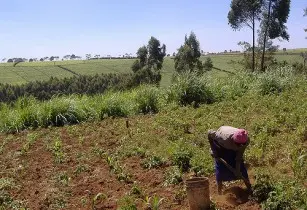In a newly released paper, the Food and Agriculture Organisation of the United Nations (FAO) and the World Agroforestry Centre (ICRAF) have undertaken a review of broad institutional and stakeholder experiences with a view to advancing cross-sectoral approaches in areas related to agriculture, natural resources and food and nutrition security
The 2030 Agenda for Sustainable Development (2030 Agenda), which lays out the principles and targets expected to guide development in the coming decade, highlights the interconnection and complexity of global challenges. Objectives related to food, nutrition, agriculture and natural resources are intrinsically interrelated. Consequently, achieving the specific targets of the Sustainable Development Goals (SDGs) requires the engagement and coordination of multiple government sectors. However, even with a growing emphasis on the value of working across sectors, the literature offers little guidance on how to integrate cross-sectoral approaches into national and sub-national planning and implementation.
The paper titled “Implementing 2030 Agenda for Food and Agriculture: Accelerating Impact through Cross-Sectoral Coordination at the Country Level” is conceived as a resource for national and international actors who recognise the benefits of using cross-sectoral approaches to achieve common strategic development goals at the country level. It looks at how cross-sectoral coordination can be designed and carried out at the country level, and identifies factors and conditions that can advance it. In addition, the paper investigates the role of multi-stakeholder collaboration in facilitating and supporting coordination across sectors.
The paper builds on the available literature and on country studies from Asia, Africa and Central America to analyse how and when to work across sectors and to identify elements that may enhance cross-sectoral coordination. The analysis addresses the following dimensions: initial and enabling conditions, governance arrangements and processes.
Bringing together insights from the literature, selected case studies and the outputs of an expert consultation, this paper identifies factors that can facilitate cross-sectoral coordination and decision-making at the country level. It is aimed at a broad audience, including workers in governmental and non-governmental bodies, international development agencies and partner organisations sharing a common desire to build synergies and accelerate impacts by addressing multiple development objectives simultaneously and working together across sectors.





